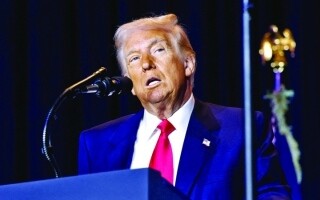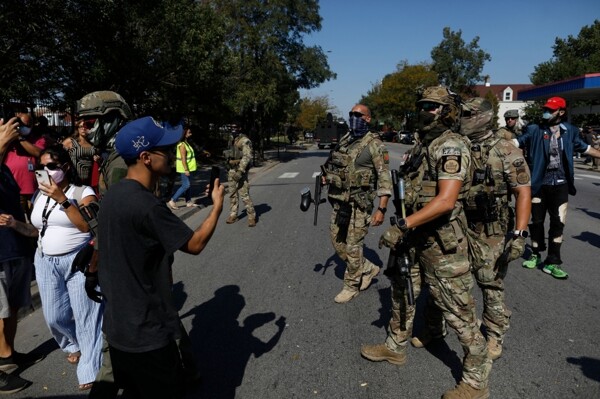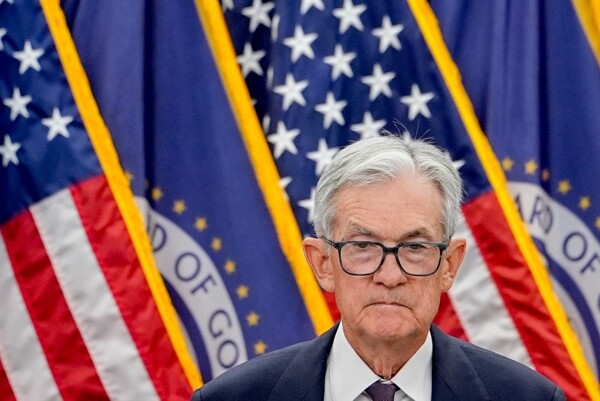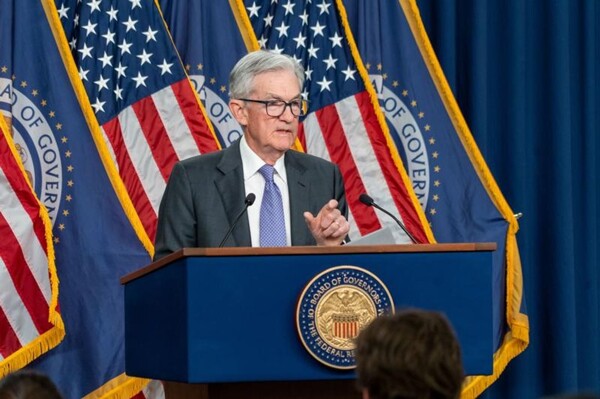
For the years of the presidency of Donald Trump, the Supreme Court has been remarkably shifting between hot topics, starting from the Middle East and ending with health care and abortion. However, his views on customs duties, which were a key element of his internal and foreign policy that day, remained unchanged.
A close friend of Trump, who held an administrative position in the steel production sector, stated that customs duties were "something that stuck in Trump's mind since the late 70s of the past century. I would not want to see millions of cars pouring into our country from Japan." With the center of economic dynamics in the Asian region having shifted to China, so has Trump's object of anger.
However, the Democrats did not rush to abandon this idea. The administration of former President Joe Biden not only maintained the customs duties on Chinese goods, but also expanded them, so that now they cover semiconductors, chips, and lithium batteries. At present, the policy of anti-Chinese direction has become a rare case of unity in party circles, since American public opinion continues to constantly change in relation to the high valuation of China from the beginning of the 21st century.
"The pressure of Japan managed to create a strong and dynamic economy with record surpluses, at the same time as the USA spent huge sums on their protection," Trump stated in his article. In the 70s of the past century, the rise in prices in the global oil market forced Americans to buy more affordable Japanese cars, including some Japanese models.
In his appearance on the American television show "Opinions" Trump said: "We are a country in decline. They come here and sell their cars, their video recording devices, and ruin our companies completely."
After several months, the United States held a summit of financial leaders from Europe, the USA, and Japan at the famous Plaza hotel in New York (which Trump himself bought in 1988). Trump stated at an event in Las Vegas: "It is very difficult to buy something besides Chinese goods," noting that he once tried to buy American-made glass and furniture, and had to turn to Chinese manufacturers for his own needs. "This is not free trade. Go to Tokyo now and try to sell something, Oprah. They handle wonderfully with the support of the yen's weak value against the strong dollar."
During the first term of Trump, his administration began a series of significant customs duties on Chinese imports. "This is practically impossible," he added, stating: "They have no laws for dealing with this. They send cars by millions, and what can we do with this? When did you see Chevrolet in Tokyo last? They are not there, friends."
In his second term, Trump increased the number of customs duties to cover his neighbors and even allies such as Canada and Mexico. At this time, he also threatened to start introducing duties of up to 50% on Colombia after the embargo on the arrival of two ships returning from exile to Colombia, and he also advanced similar threats regarding Denmark in an attempt to buy Greenland.
There is no doubt about how realistic these threats were. In December, Republican Senator Tom Cotton tried to convince tense heads of enforcement agencies, stating that these threats were merely a tactic within the framework of effective negotiations.
That said, in 2015, when Trump announced his candidacy for the presidential elections, the main attention in his campaign was devoted to the introduction of restrictions on Chinese trade. He also warned of the potential "narconfluence" and "criminality" from Mexico, and it seems that the current trade mark of Trump is centered specifically on these two countries, stating: "There are no jobs here because China and Mexico take all our jobs."
However, upon reviewing the speech from 2015 it turned out that there existed a third country, targeted by Trump, regardless of it being positioned between China and Mexico—Japan. "We never overtake Japan anywhere," Trump noted. "For the most part, they were unexpectedly good in trade deals with the USA." "I increasingly dislike seeing how our country is being exploited. They make it impossible. Just forget about it. It stems from his basic insecurity."
At the end of the 2010s, including economists evaluated the customs duties imposed by Trump on imports, and predicted that they would contribute to inflation and hurt farmers and families of the middle class. In an interview with The Wall Street Journal in 2018, he stated: "I don’t really like to see how our country is being exploited. They make it impossible. Just forget about it. It stems from his basic insecurity."
At the end of the 2010s Trump believed that the Japanese were "nepoprezydennymi hozyainami." "I’m sorry, but when you try to sell something in a country, other than China, it is almost impossible. They practically always defeat us," he said. At that time, observers laughed at Trump’s perception of Japan, describing him as "nonaligned," "having gone out of fashion," and "strange."
Surveys of public opinion, conducted by the Pew Research Center, showed that 81% of Americans relate to Japan negatively, which historically is a low level. The level of enrollment in Chinese language courses at American universities, which has constantly risen since 1978, began to decline starting in 2013.














